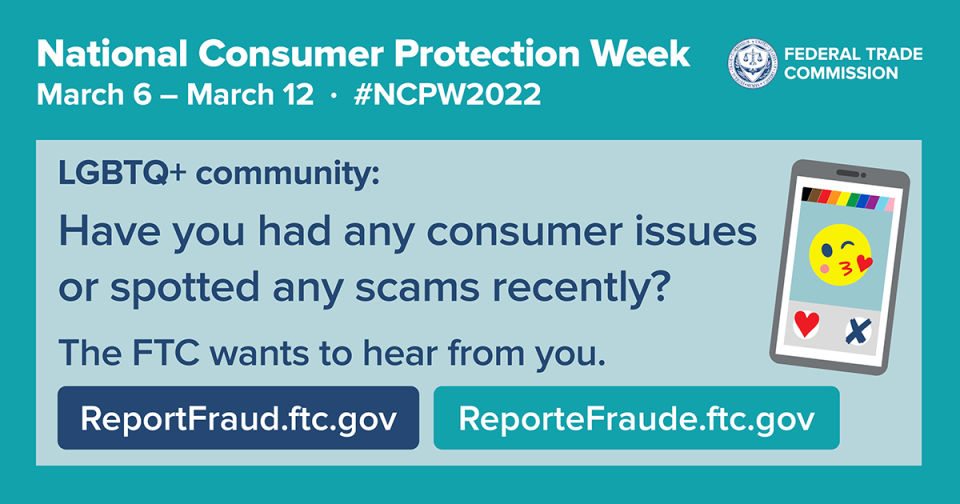This National Consumer Protection Week (NCPW), we’re focused on how scams affect every community — including the LGBTQ+ community. Scammers often like to impersonate familiar people, organizations, and companies that we know and trust. For the LGBTQ+ community, that can include “safe spaces” — or places where the LGBTQ+ community is free to proudly be ourselves.
Scammers can take advantage of those safe spaces — especially online. For example:
- Scammers target people on LGBTQ+ dating apps. Here, a scammer poses as a potential romantic partner on an LGBTQ+ dating app, chats with you, quickly sends explicit photos, and asks for similar photos in return. If you send photos, the blackmail begins.
- Job scams are everywhere. There are job boards particularly for LGBTQ+ applicants to find jobs with welcoming employers. But even if a job says it’s LGBTQ+ friendly, it might not be legit. Unfortunately, job scams can show up anywhere — including on those community boards.
And those are just two examples, and we know there are more. A lot more. So, we’re asking for your help: if you see a scam, or a friend or family member tells you about a scam — tell them to report it at ReportFraud.ftc.gov or, in Spanish, at ReporteFraude.ftc.gov. Every report helps the FTC fulfill its mission to protect every community from scammers. When you tell your story to the FTC, it’s shared with more than 3,000 law enforcers — and it helps the FTC and other law enforcement spread the word so others can avoid scams.
Check out what’s going on during #NCPW2022 at ftc.gov/ncpw. We hope to see you at some of the events.

